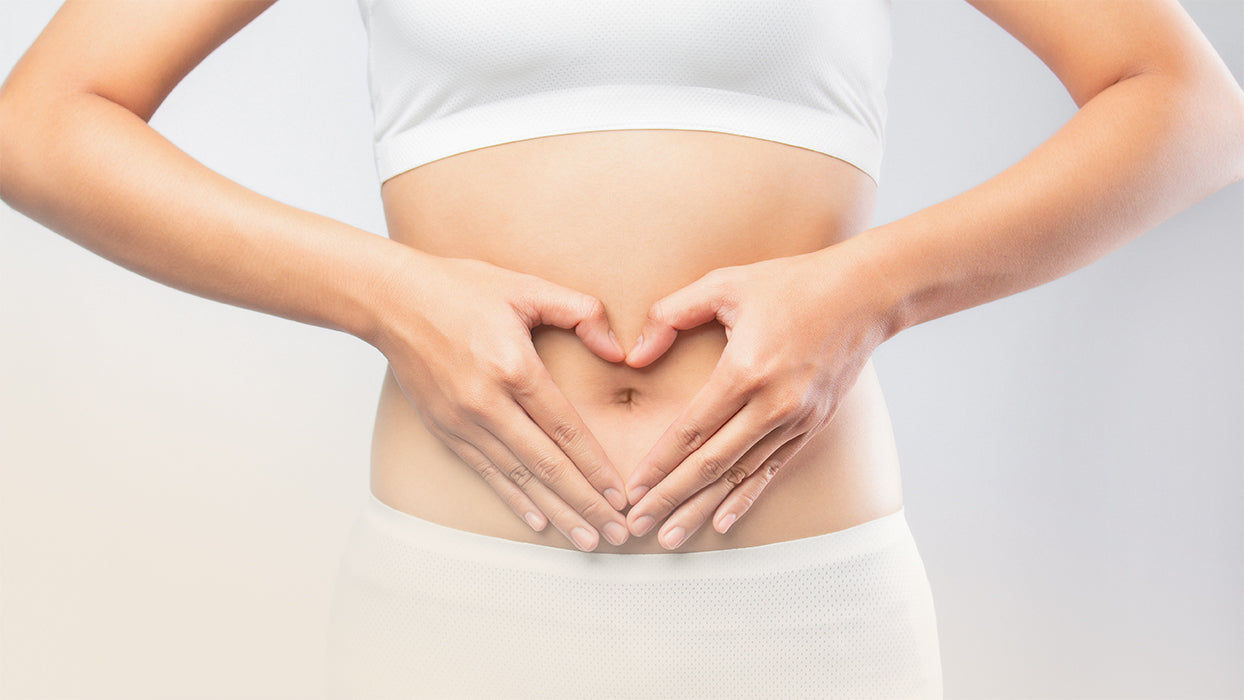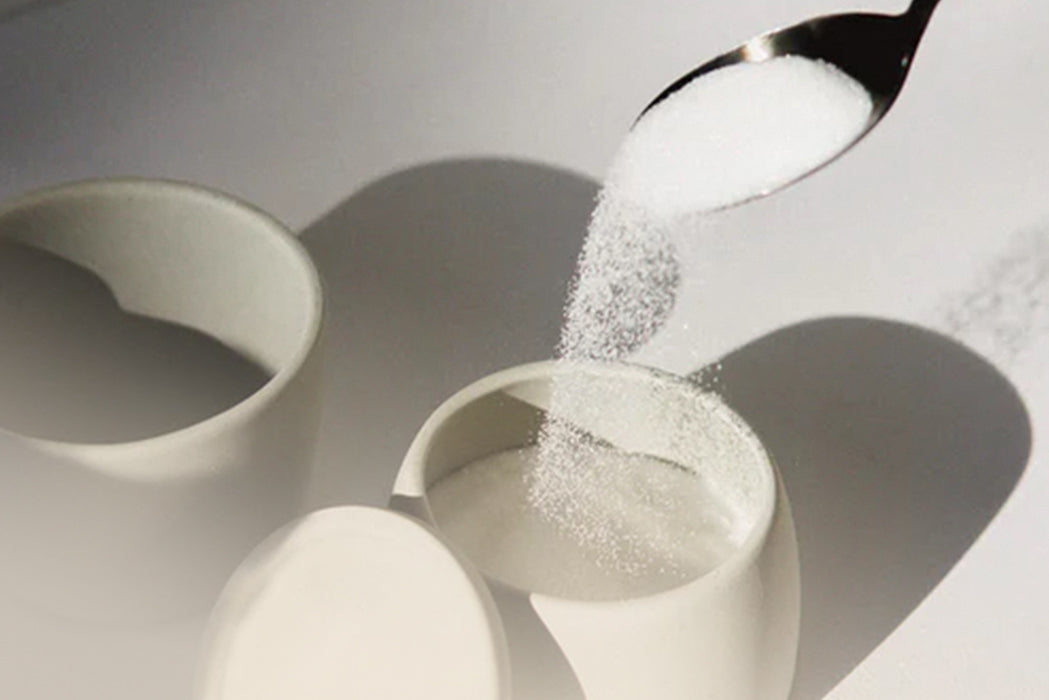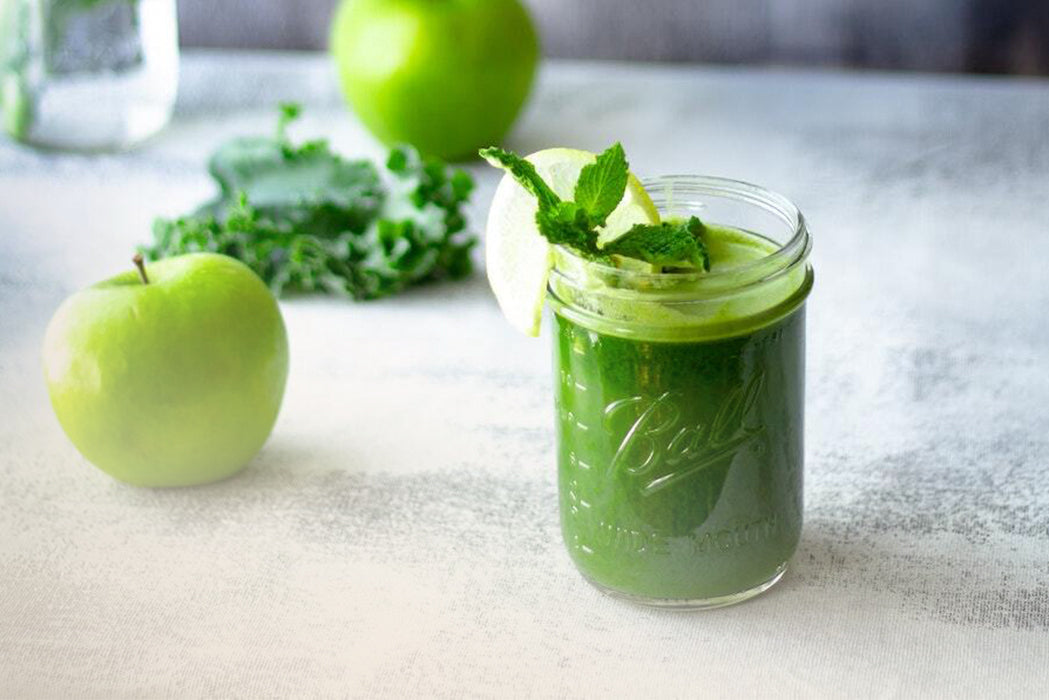The expert team at myBioma microbiome analysis will enlighten you!
We not only drink kombucha with passion, but are also interested in all important topics related to intestinal health and everything that goes with it. It therefore made sense to exchange ideas with the experts from myBioma and test their myBioma microbiome analysis. Of course, we are particularly interested in how our kombucha has affected our intestines . More on that after the interview!
Who is behind myBioma and how did you come to develop a microbiome analysis?
myBioma was founded in 2018 by Dr. Barbara Sladek and Dr. med. univ. Nikolaus Gasche founded. Our founding team has relevant backgrounds in molecular biology and medicine. Barbara Sladek is a doctor of biochemistry (Oxford, UK) and a qualified molecular biologist (University of Vienna). Nikolaus Gasche is a doctor and serial entrepreneur.
Barbara and Nikolaus had their first conversations about the importance of the intestinal microbiome far away from Vienna - in Ghana. Barbara was there as a traveler, Nikolaus as a trainee. Three years and many conversations later, they implemented their plan and founded the biotech start-up myBioma with a focus on “Next DNA Generation Sequencing, a scientific and IT-heavy process.
The goal is to emphasize the importance of the intestinal microbiome and to establish an analysis of intestinal health as a routine measure .

What is meant by the term microbiome?
The microbiome is the collection of the trillions of microorganisms that live in and on our bodies . It consists primarily of bacteria, but also contains fungi, viruses and primordial bacteria. In total, over 30 trillion bacteria from over 1000 bacterial species live in us - that's more bacteria than we have in our body's own cells .
It is fascinating what influence the microbiome has on our overall health: In addition to typical digestive problems such as constipation, diarrhea, flatulence or a bloated stomach, problems with calorie utilization, skin, cardiovascular system, insulin balance or even our psyche can also be caused here. Our microbiome communicates directly with our brain and thus also influences our behavior. It is all the more important to pay attention to the health of your own microbiome!

The myBioma founding team, Dr. med. univ. Nikolaus Gasche and Dr. Barbara Sladek
What differentiates myBioma from a conventional stool sample at the doctor?
What is often asked is why the analysis at the family doctor is cheaper and is much quicker. This is of course true, but the doctor's analysis is carried out on the basis of stool cultures. Such cultures are one of the oldest analytical methods (for 200 years) and are inaccurate in the quantitative detection of different bacteria. In addition, an analysis using stool culture only detects 10 different bacterial species on average, whereas the myBioma method (Next Generation Sequencing) can detect over 1000 different bacterial species. Due to the complexity of next generation sequencing, the analysis is very cost-intensive. However, you also get a completely different result. You not only find out which bacteria live in your own intestine, but also what they are responsible for. The whole thing is clearly prepared in an individual microbiome report including suggestions for improvement. We have also developed our own app in which the result can also be accessed.
How does the myBioma microbiome analysis work exactly?
We tried to make the process as simple as possible. The kit can be ordered online on our homepage: www.mybioma.com directly to your home , which also makes stool collection more pleasant. The sample can be taken in the familiar toilet and sent back to us with a prepaid return envelope. Detailed instructions and help for stool collection are included in the kit. After that, the sample just needs to be activated either on our homepage or app. We always provide status updates on where the sample is currently located. Once we receive the sample, we pass it on directly to our partner laboratory, which is located at the Vienna General Hospital. We also work together with the Medical University of Vienna. Here the stool is sequenced, which can take up to 6 weeks. We then receive a huge data set, which our bioinformaticians prepare clearly so that you receive a health report of your own microbiome . You can also take a look at our sample report here.
What tips do you give your testers if the microbiome is unbalanced?
First of all: We do not recommend probiotics, medications or other miracle pills. With the right foods and lifestyle, we can feed and multiply the right bacteria so they can work for us again. Generally speaking, a healthy lifestyle has a positive effect on our microbiome. At myBioma we summarize five pillars of a healthy intestinal microbiome: First and foremost - nutrition. It's not just the quality of our food that counts, but above all how we eat. Eating hastily can stress our intestines - which brings us to the second point: Stress is one of the number 1 causes of illness in our society and our microbiome is also negatively affected by it. Another important aspect is regular exercise , which activates our intestines and is best done in the fresh air. Sufficient sleep is also good for our microbiome. Lastly, toxins such as alcohol, nicotine and medications should be mentioned, which should be avoided as much as possible. In the microbiome report, everyone receives scientifically based nutritional suggestions that match their results and are easy to integrate into everyday life. For example, to strengthen the gut-brain axis, it is important to incorporate omega-3 fatty acids into your diet. Omega-3 fatty acids reduce the risk of brain-related diseases and promote beneficial gut bacteria. Omega-3 fatty acids are found in oily fish such as trout, salmon and sardines, avocado, spinach, nuts and seeds and also in cold-pressed organic olive oil.
Which diet can support the microbiome?
A diverse and varied diet consisting mostly of vegetables and fruit is the best choice to feed our good intestinal bacteria. The right diet lays the foundation for a healthy microbiome. It is also important to integrate sufficient prebiotics and probiotics from natural sources .
Prebiotics are non-digestible food components that are helpful by specifically stimulating the growth of good intestinal bacteria. Prebiotic foods include onions, garlic, Jerusalem artichokes, leeks, asparagus, beans, bananas, chicory, artichokes, dandelions, apples, linseeds and brassicas.
Probiotics are live microorganisms that are added to various foods. They have health-promoting effects and are found, for example, in natural yogurt (unsweetened!), sauerkraut and kombucha .
What do you think about fermented foods, such as kombucha, can it improve gut health?
Fermented foods like kombucha contain different strains of bacteria that can support intestinal regeneration. For example, it has also been proven that such bacteria alter brain activity related to stress and emotion regulation, thereby leading to an improvement in antioxidant status. This in turn affects the balance of the insulin balance. We think fermented foods are brilliant and recommend them in our report for various ailments.
If you have psychological problems, would you also recommend a microbiome analysis to rule out a possible imbalance in the intestine?
Of course, if you have serious problems, we always recommend contacting a doctor. Nevertheless, it can make sense to take a look at the microbiome if you have mental problems. The intestine is home to over 100 million nerve cells that lead to the brain. That's even more nerve cells than all those that lead from the brain to the entire body. This means that the intestine is in a constant exchange of information with the brain. The nervous system of the intestine uses the same neurotransmitters (information transmitters between cells) as the brain and neurotransmitters play an important role in mental illnesses, such as depression. The metabolism of bacteria in the digestive tract can disrupt the balance of brain messengers such as norepinephrine, dopamine or serotonin and thus influence the mood.
We have also addressed this topic in our report, so that you can use myBioma to learn more about your own gut-brain axis.
My experiences with the myBioma microbiome analysis!
I actually had the pleasure of testing the myBioma microbiome analysis myself. The test in combination with the very well structured app was really interesting. Interesting questions about various eating habits and complaints etc. are asked in advance.
After sending the sample, I waited anxiously for my result and was regularly updated on the latest status of the sample.
My personal microbiome report was also above average. The microbial composition, nutrition and food utilization and health were excellent. The composition of the bacteria is also listed in detail. My species richness and probiotic bacteria are also above average for many people.
I am very happy that a balanced diet combined with kombucha seems to ensure a healthy intestinal microbiome . The app also offers important tips for working against a wide range of complaints and really guides the user in detail. Here are a few excerpts from my personal test. However, this is really only a very small part of the complex analysis.




By the way, with the code KOMBUCHERY10 you get a 10% discount on the microbiome analysis from myBioma!














Teilen: